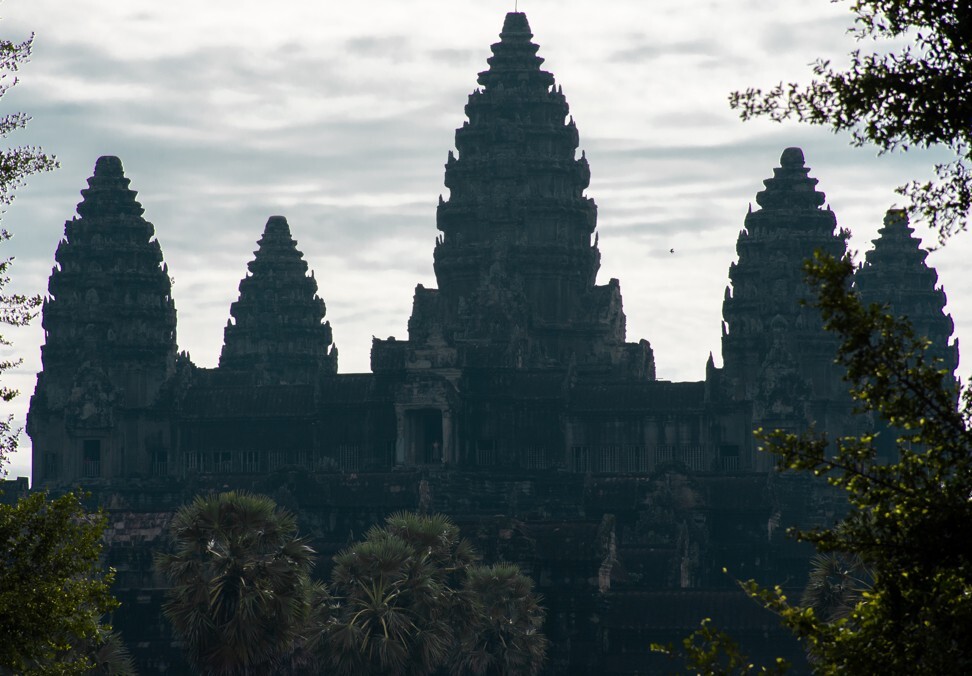
Where to go in 2021 now pandemic has changed travel: not East Asia, according to Lonely Planet, as it picks places and projects making a difference in our fragile world
- This year, instead of 10 best cities, regions and countries, the travel guide publisher highlights 30 inspirational people, destinations and tourism projects
- Footprint Cafés in Siem Reap, Cambodia, which supports training, employment and start-ups to help lift people out of poverty, is named ‘best small business’
Lonely Planet has unveiled its Best in Travel picks for 2021 – and East Asia is almost nowhere to be seen. Although Asia-Pacific is represented by projects in Australia, New Zealand and Palau, and Jordan in West Asia and Kazakhstan in Central Asia, get a mention, only Cambodia flies the flag for the continent’s eastern half.
Like everything else associated with 2020, though, travel has been anything but usual.
“It was a different proposition this year – we felt that it would be tone-deaf to produce a list of the 10 best cities, regions and countries. We had to interrogate what delivers on the principles of community, diversity and sustainability,” says Hegarty.

Lonely Planet has thus highlighted 30 inspirational people, destinations and tourism projects focused on those three perceived trends for 2021.
From world’s biggest travel guide to losing its way
“This isn’t about charity, but a new way of doing business that rightly empowers those who are working hard and have a vested interest in seeing their local community thrive,” she adds.
“It’s a real opportunity to take in the peace and serenity of the temples, like never before in this century, [but] tourism really is the life blood of Siem Reap, and the sooner tourists come back, the better for the whole community.”

Hong Kong would normally expect to get a mention in any conversation about great cities to visit, but not this time.

Kazakhstan won the “best accommodation” title in Lonely Planet’s Community section for its innovative homestay programme. In the vast Central Asian country, which is largely free of hotels, rural villagers are trained in hospitality to provide for travellers.
Within the Diversity section is Amman, Jordan, which has been bestowed with the “welcoming destination” title, and Hiakai, a fine-dining restaurant in Wellington, New Zealand at which you’ll find the “best indigenous food”.
Tiny Palau was declared “best island” in the Sustainability category for the measures it’s taken to protect its marine ecosystem. All visitors to the Pacific Ocean nation must sign an eco-conscious pledge.
Cruise the Nile, take a Star Ferry: world’s best boat trips
The country was chosen in the publisher’s “restoration” category (part of the Best in Travel’s Community section), and singled out in the website write-up is social enterprise Echidna Travel, which leads visitors on tours to collect data on animals returning to the devastated land.
For every human visitor, Echidna plants one eucalyptus tree to help koalas, 60,000 of which were killed or injured in the blazes according to recent estimates.
“There’s going to be a massive consumer demand to travel simply because we’ve been curtailed, but safety will be the No 1 consideration in terms of the world opening up again,” says Hegarty. “However, there may not be the same access when this is over because some airlines won’t survive.”

As a result, travel will probably become a more expensive luxury.
“There’s always been an argument that it’s people with money who can afford to do international travel, but there’s been a massive increase in travelling by the middle classes in China and India,” says Hegarty.
Covid-19 may dent that trend a little, but there’s already evidence to the contrary. “We may see a massive resurgence because in China there’s been a trend for ‘revenge spending’ as domestic travel is back to 90 per cent of what had been in 2019,” says Hegarty. “The appetite is there.”
Lonely Planet’s data suggests that while people are expressing an intention to travel, they’re not making bookings yet. That could remain the case until vaccines are widely distributed – although then there could arise the issue of vaccinated “haves” and “have nots”, with newly protected people from rich countries venturing into regions still ravaged by the coronavirus.
Is it safe to travel now? Yes, says World Tourism Organisation
The “safety first” post-Covid world is going to be tricky to navigate for tourists trying to do the right thing.
“We never say, ‘This is what you should do and this is how you should do it’ because we see our role as providing information, and telling it like it is, so our users and our readers can make up their own minds,” says Hegarty. “Travel will become a more thoughtful exercise, and may be more expensive, but having really good information will become even more important.”

